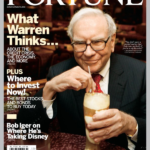This particular TikTok trend is quickly becoming a flashpoint in debates about workplace culture, generational divides, and the future of soft skills. While it may seem like a fleeting meme, the Gen Z stare is emblematic of deeper economic and social shifts as the youngest working generation reshapes the labor market.
The Gen Z stare is typically described as a vacant, unresponsive gaze, often replacing traditional greetings or small talk in service roles. Millennials and older generations have taken to social media to share stories of being met with this stare by young workers, interpreting it as a sign of disengagement or a lack of soft skills. Gen Zers, in turn, argue that the stare is a reaction to awkward or nonsensical customer interactions, or simply a preference for authenticity over forced pleasantries.
To be sure, every so-called generation comes in for a wave of criticism from their elders, usually in their 20s when they enter the workforce. The complaints levied against Gen Z are something like a hybrid of the two generations that preceded them: millennials and Gen Xers. They seem to have similar issues that millennials faced with accusations of over-sensitivity, tech addiction, and failure to launch from their parents’ homes, and that Gen Xers faced with detachment and emotional distancing.
Each generation, as it comes of age, faces a unique set of stereotypes and criticisms—often reflecting broader social, economic, and technological changes. While the specifics shift, the pattern of older generations critiquing the young remains a constant feature of public discourse.
The economic impact of the Gen Z stare extends far beyond a viral meme. It highlights the costs and opportunities of generational change: higher training and adaptation expenses, shifting consumer expectations, and the need for new management strategies. For businesses, understanding and bridging these gaps will be essential to harnessing the full potential of Gen Z in the workplace and the marketplace.
For this story, Fortune used generative AI to help with an initial draft. An editor verified the accuracy of the information before publishing.









